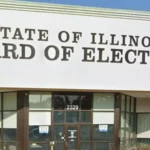
On December 4, the Supreme Court heard oral arguments for United States v. Skrmetti, which concerns Tennessee’s Senate Bill 1 (SB1). The law bans medical interventions for minors, such as puberty blockers and hormone therapies, that facilitate gender transition. Tennessee is one of more than twenty states that have passed laws restricting this practice due to concerns about irreversibility, potential side effects, and children’s capacity to provide fully informed consent for these treatments.
The federal government and the ACLU, representing a Tennessee OB/GYN, multiple transgender children and their parents, sued Tennessee. They claimed the law amounts to illegal discrimination on the basis of sex by precluding transgender children from accessing these drugs and procedures while allowing them to still be used in other instances. For example, U.S. Solicitor General Elizabeth Prelogar mentioned that puberty blockers may sometimes be necessary for pediatric cancer patients, and that use was not impacted by SB1.
Tennessee Solicitor General J. Matthew Rice argued that SB1 does not discriminate based upon sex because the law relies upon the “medical purpose” for a treatment. He also emphasized that it is not the Court’s job to “constitutionalize” one interpretation of current medical research. Rather, the Court should simply defer to the state’s democratic process. Justice Roberts and Justice Kavanaugh seemed particularly amenable to the latter argument.
The Court appeared divided along partisan lines over whether SB1 results in disparate treatment of certain medications for boys and girls, warranting reconsideration under heightened scrutiny. However, none of the six conservative justices expressed much agreement with the liberal wing’s arguments. As such, it appears likely that the Court will not remand the case to the appeals court for further examination. That would effectively keep Tennessee’s restrictions in place.
Beyond this main observation from this morning’s argumentation, a few additional points stuck out to the McDowell Fellows as important for understanding the Court and where it could go from here. Justice Neil Gorsuch’s silence during questioning this morning was notable. He had no questions at all for the U.S. Solicitor General, the ACLU lawyer, or the Tennessee Solicitor General. Justice Gorsuch previously authored one of the main precedents that may inform how the Court will define the limits of sex discrimination. In Bostock v. Clayton County (2020), Justice Gorsuch, writing for the 6-3 majority, ruled that firing someone solely based on sexual orientation or gender identity constitutes illegal sex discrimination because it involves “fir[ing] that person for traits or actions it would not have questioned in members of a different sex.”
The liberal justices sought to apply the logic of Bostock to the “gender-transition medications” at issue here. Because medications, the Justices argued, are used differently for boys and girls during gender transition procedures, the law necessitates some degree of differential implementation based on the biological sex of the transgender child seeking to transition. Gorsuch’s questions may have shed light on his interest in accepting this expansion of Bostock, but given the questions from the other five conservatives, his vote may not significantly impact the case’s outcome.
Another procedural point that arose during the argument shed light on where this case could lead in future terms. Should Tennessee prevail, the Court signaled it may leave open the possibility of a challenge to the law on explicit parental rights grounds, as opposed to the sex discrimination case now before the Court. This could foreshadow future litigation challenging SB1 after Skrmetti. On the other hand, the relief sought by the United States is sufficiently limited that winning this case will likely not definitively close debate on this contested policy either. If the Court rules that the differential application of this law for boys and girls requires increased scrutiny, the case will likely be remanded to the Sixth Circuit, which could ultimately still approve the law under that standard. This is to say that this case is unlikely to provide the type of closure on this issue that high-profile cases often do.
SUPPORT LANDMARK LEGAL FOUNDATION
We are truly facing existential threats to our individual rights and liberties, the Constitution, and our national character. If unchallenged, this assault on our very way of life will ruin our great nation. With your financial and moral support, Landmark is not going to let that happen without a fight. Will you join us?
JOIN OUR MAILING LIST
Never miss an update from Landmark Legal Foundation as we continue the fight to preserve America’s principles and defend the Constitution from the radical left.
Landmark will NEVER share your contact information and we will not flood your inbox.





